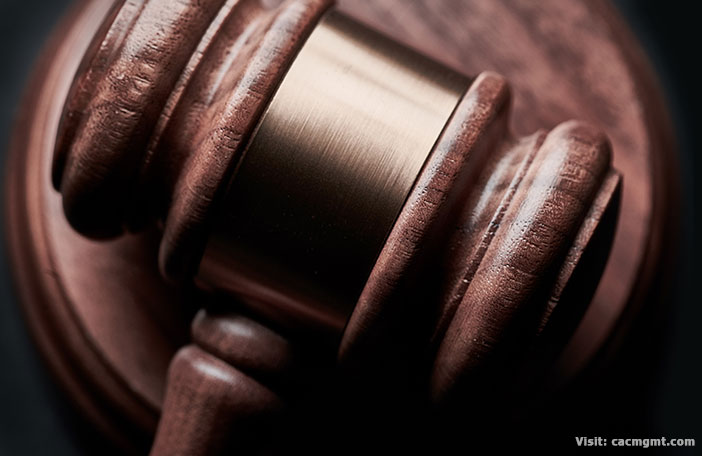Below is a helpful tip from the Davis-Stirling.com Newsletter by ADAMS | STIRLING PLC regarding . . .
Can the HOA Be Sued If Someone Catches the Virus?
QUESTION: A number of readers asked if their association could be sued if they opened their recreational facilities and someone catches the virus. Lawsuits are always possible but unlikely if boards are reasonable about when and how they open their facilities.
Purpose of Lockdown. The whole point of the nationwide lockdown was to slow down the infection rate so hospitals would not be overwhelmed. That has been achieved. Clearly, the virus will continue to spread through the population as restaurants, stores and hair salons reopen. Fortunately, hospitals now have the equipment and supplies they need to handle any additional outbreaks.
Options. People want to return to normal and many are pressuring boards to open their recreational facilities now. Boards have three options: (i) open facilities despite stay-closed orders, (ii) wait until restrictions are lifted, or (iii) continue to keep facilities closed even when restrictions are lifted.
Lowest Risk. Keeping everything closed even when restrictions are lifted has the lowest risk because no one can claim they caught the coronavirus due to some alleged negligence by their association. However, keeping facilities closed until there is zero chance of anyone ever catching the virus is unrealistic. It means keeping everything closed until a vaccine is developed (assuming one can be found) and everyone in the association is vaccinated (an unlikely occurrence). Besides, members would not tolerate keeping facilities closed indefinitely.
Highest Risk. The option with the highest risk is to open facilities while stay-closed orders are still in place. If someone catches the virus and claims it occurred while the facilities were open in defiance of a health directive, it makes it harder to defend the board’s actions. Also, the association would probably not have insurance coverage because the board’s actions were contrary to an executive order and because most policies have an exclusion for communicable diseases.
Better Approach. The safer approach is to wait until applicable jurisdictions lift their stay-closed orders. At that point, associations can legally open their facilities. Then it becomes an issue of following reasonable guidelines. At a minimum, associations should adopt and post guidelines published by the Centers for Disease Control (CDC). If state, county or local guidelines are published, boards will want to implement those as well.
Reduced Litigation Risk. If boards open their facilities in compliance with health department directives and follow published guidelines, it significantly lowers the risk of lawsuits being filed against the association. If someone were to sue alleging they contracted the virus from the association’s gym, swimming pool, or clubhouse, proving causation will be a problem. How do they prove they caught it from the association’s facilities and not the grocery story they just visited? Also, if the board followed applicable guidelines, how do they prove negligence?
Hold Harmless Agreement. Although not necessary, boards could lower the risk of litigation further by requiring signed hold harmless agreements before residents use common area facilities. It creates another barrier for plaintiffs to overcome if they hope to win an award of damages.
RECOMMENDATION: It sounds like the person has mental issues. If so, fines may not deter him. A letter from association’s attorney threatening to sue him might curb his unhealthy activities. If there is a landlord involved, a lawyer letter to him/her is warranted.
It is not possible for associations to keep common areas virus-proof. There is an inherent risk of exposure to the virus in any public place where people gather. All boards can do is reduce risk by taking reasonable precautions. To that end, boards should work closely with legal counsel as stay-closed orders are lifted and facilities reopen.
At some point, enough people will have contracted the virus that it will have nowhere to go and will die out. Then we can return to more mundane risks related to water damage, mold, slip and falls, harassment, political campaigns, and the like.
Covid-19 Chart. An updated chart will be posted on the Davis-Stirling website. Thank you to readers for sending us information about their counties. If we missed anything, please contact us. To view the chart as of July 7, Click Here.
For more knowledgeable information regarding the business of HOA’s, visit: The Davis-Stirling.com Newsletter
DISCLAIMER. The Davis-Stirling.com Newsletter by ADAMS | STIRLING PLC provides commentary only, not legal advice. For legal advice, you’ll need to hire legal counsel. You can hire ADAMS | STIRLING PLC; Keep in mind they are considered corporate counsel to associations only.

